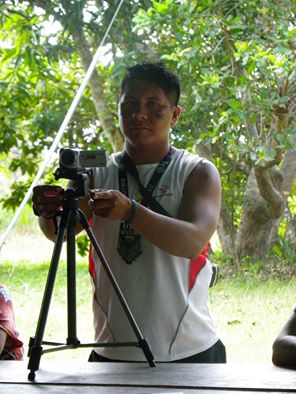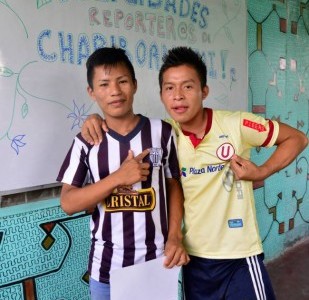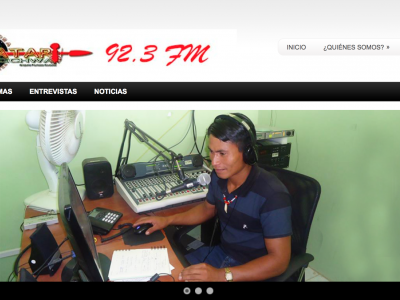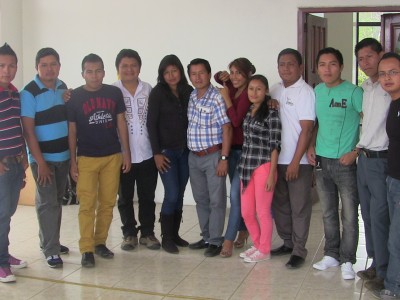Rising Voices Grantee Project Update.

Saúl López (Kuyujani) documenting a students assembly at the Indigenous University of Venezuela.
In Venezuela there is an important number of indigenous cultures, many of them still speak their own languages. Acculturation processes, however, put these communities’ intangible oral legacy at risk. With Rising Voices’ support, as well as other ally organizations, a group of socio-cultural managers is developing interesting projects with the aim of revitalizing the oral traditions in some indigenous ethnic groups through the intervention of digital media and information and communication technologies (ICTs).
The aim is to generate spaces for producing digital content in video, audio, text, images formats, that might register stories, cultural events (dancing, arts, rituals), community life and interviews with elders for future generations, that in time may be currently useful as educational material for younger members of each ethnic group, as well as users of the most popular social networks, they share and make visible their ancestral people's legacy to the world. Thanks to these initiatives, the Mapoyo culture language was recently declared cultural heritage of Humanity by UNESCO.
The Jatta Wöötanö community that uses Makiritare language as means of communication, is the first project that works with Yekuana indigenous youth from the Caura River. They aim to form “etnocommunicators”; members of the community interested in preserving their cultural legacy supported by media outlets and ICTs. The arrival of these tools to the communities is imminent and more and more they are becoming spaces with Internet connections, digial satellite TV and AM and FM radio stations. Boca de Ninchare is the epicenter of formation. There, 15 youth meet monthly to generate spaces for reflection about the media and, at the same time, they produce content related to their culture. Next January we will be able to visit the blog created by students as well as social networks (Facebook, Twitter) related to the project.
The initiative has been promoted mainly by Saúl Lopez (Kuyujani in his native language), who inspired by his interest for communication and technologies, found out interesting mechanisms to preserve his culture with these tools, especially from video and movies, his main area of interest. Kuyujani tells us:
Las nuevas generaciones de indígenas yekuanas tenemos que saber interactuar con el mundo criollo, con respeto y sentido de pertenencia, en los espacios que nos ofrece la interculturalidad. Para ello los medios pueden ser de mucha ayuda pues nos sirven como canales para la comunicación con el otro y al mismo tiempo revitaliza nuestra cultura.
We, younger generations of Yekuana indigenous people have to know how to interact with the Creole world, with respect and an sense of belonging, in the spaces where interculturality is offered. Here, the media might be very useful, as they are channels for communication with each other and, at the same time, revitalizes our culture.
Saúl López is currently Jatta Wöötanö project coordinator, and is preparing his senior thesis for the Indigenous University of Venezuela, titled: “Influence of information and communication technologies (ICTs) in Yekuana orality. Case study Jüwütünña community in Upper Erebato, Bolívar State”.




1 comment